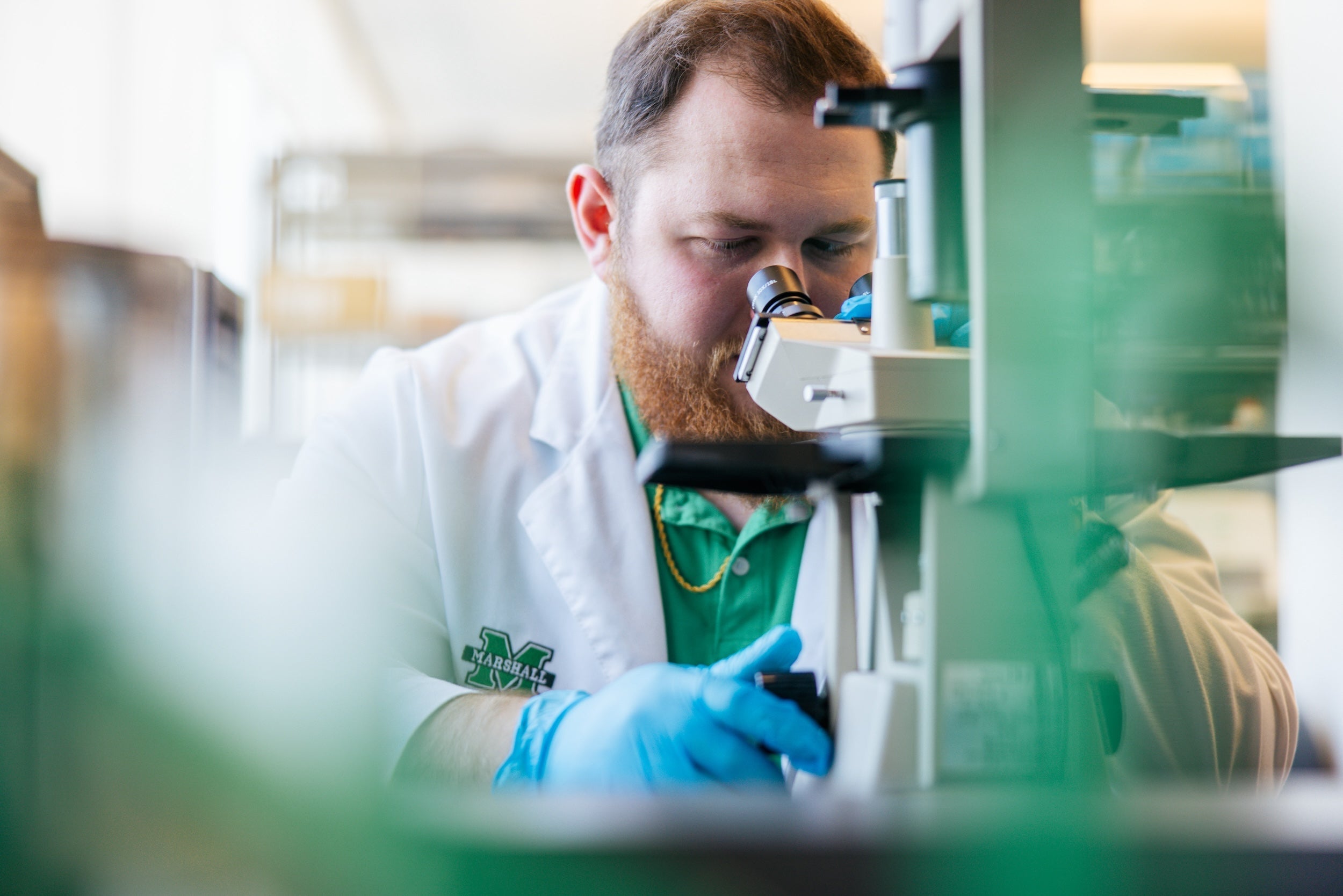
Our unique PharmD program develops practice-ready pharmacists for diverse healthcare environments. This is done through intensive coursework in biomedical, pharmaceutical, and clinical sciences utilizing active learning in newly constructed studio classrooms and laboratories. The ideals of professionalism, leadership, critical thinking, lifelong learning, and ethical behavior are incorporated into the classroom as well as rotation experiences. Our health science campus allows us to provide unique interprofessional activities with students in medicine, nursing, physical therapy, and physician assistant programs during the first year. As a result, our graduating students are experienced with a variety of rotation sites and prepared to make immediate and lasting impacts in healthcare.
Beginning with the Class of 2025, we incorporated a hybrid model in which therapeutics courses are taught in blocks of 4-7 weeks and coordinated with skills labs. This format allows students to become fully immersed in each disease state encompassing the backbone of pharmacy education. We believe that teamwork is essential for healthcare and continually reinforce this in the classroom with group activities. Therapeutics blocks are taught by teams of experts who present diseases and treatments from multiple angles in a self-reinforcing manner. This integration of content, skills, and experience with teamwork provides MUSOP graduates with foundations for building rewarding careers.
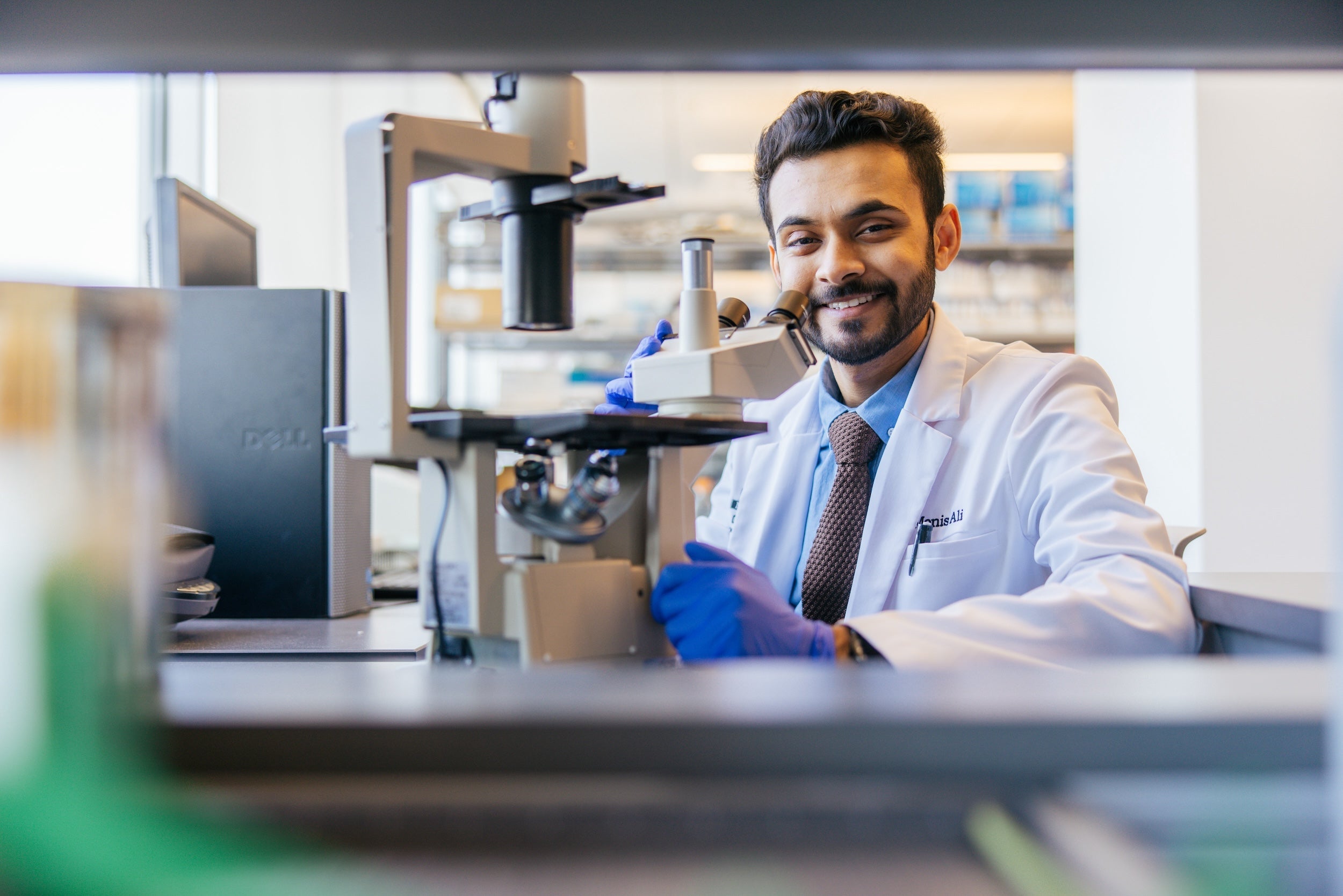
The BS in Pharmaceutical Sciences program prepares students for careers in the field of drug discovery, development and commercialization. Graduates are prepared for entry level positions in the pharmaceutical industry, academic research laboratories, and biotechnology companies. Graduates of this program may also pursue advanced degrees oriented toward research (MS / PhD) or clinical practice (PharmD, MD, etc.). Pharmaceutical sciences includes a variety of disciplines such as pharmacology, pharmaceutics, medicinal chemistry, pharmacokinetics, and pharmacogenomics that are related to the discovery and development of new drugs and pharmacotherapies to treat diseases and improve people’s lives.
Marshall’s BS in Pharmaceutical Sciences is also offered as part of an accelerated dual degree program in conjunction with the Doctor of Pharmacy (PharmD). The course work in the fourth year of the B.S. in Pharmaceutical Sciences program is synonymous with the course work in the first year of the PharmD program. This enables both degrees to be completed within 7 years rather than the typical 8 years. Graduates of the dual BS / PharmD program are prepared for careers as pharmacists in hospitals, community health practitioners, clinical research, and a variety of other health care related career paths.
The BS in Pharmaceutical Sciences is also offered in conjunction with the MS (thesis) or MA (non thesis) degrees in Pharmaceutical Sciences. The BS / MA dual degree can be completed in 5 years, while the BS/MS (thesis option) dual degree typically requires 6 years.

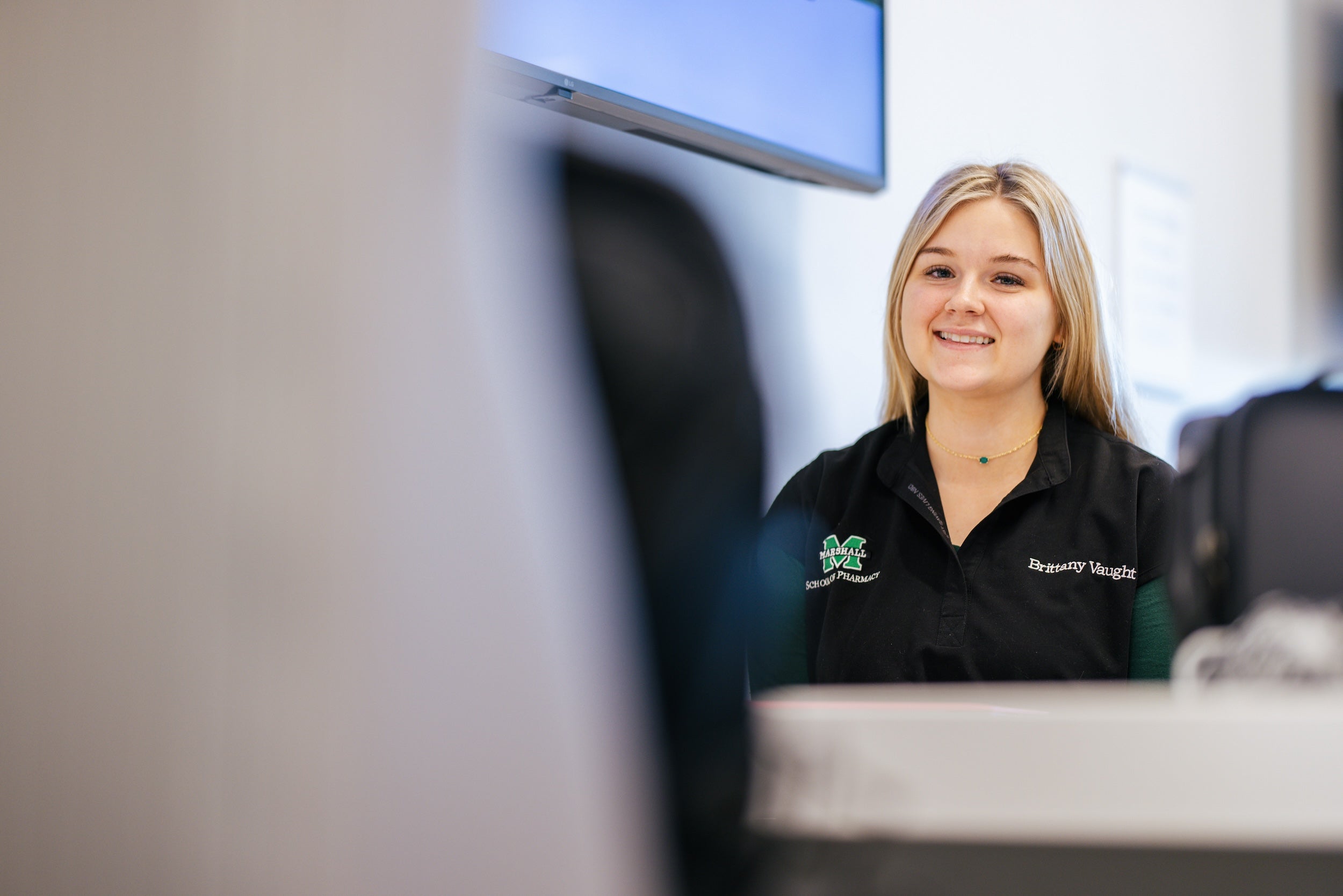
The Marshall University School of Pharmacy (MUSOP) offers two master’s programs to provide students with the training and skills required to prepare them for careers in academia, pharmaceutical industry, or public/private research institutions. The programs involve a curriculum consisting of didactic courses and research. The program of study is based on the background and career objectives of each student and is tailored to meet individual needs.
Both M.S. (thesis) and M.A. (non-thesis) options are available. The M.A. and Pharm.D. programs may be combined into a dual-degree: Pharm.D./M.A.
Full-time students typically complete the MS degree program in two years. The Department of Pharmaceutical Science and Research is comprised of faculty with expertise in pharmaceutics, medicinal chemistry, pharmaceutical analysis, immunology, microbiology, and pharmacology. The faculty are highly engaged in graduate courses and interdisciplinary research. Prospective MS thesis-track students are encouraged to contact faculty about research opportunities in their laboratory.
Graduates master the key concepts in the discipline of their interest in pharmaceutical sciences (pharmaceutics, medicinal chemistry, pharmaceutical analysis, pharmacology). They will be able to work independently or in collaboration with others in their area of expertise as an investigator. After graduation, they will be prepared for a career as an independent scientist with abilities to:
- Critically assess the scientific literature
- Engage in and conduct original research
- Design and implement research experiments to critically test research hypotheses
- Conduct research in a professional and ethical manner
- Present scientific data using strong verbal and written communication skills
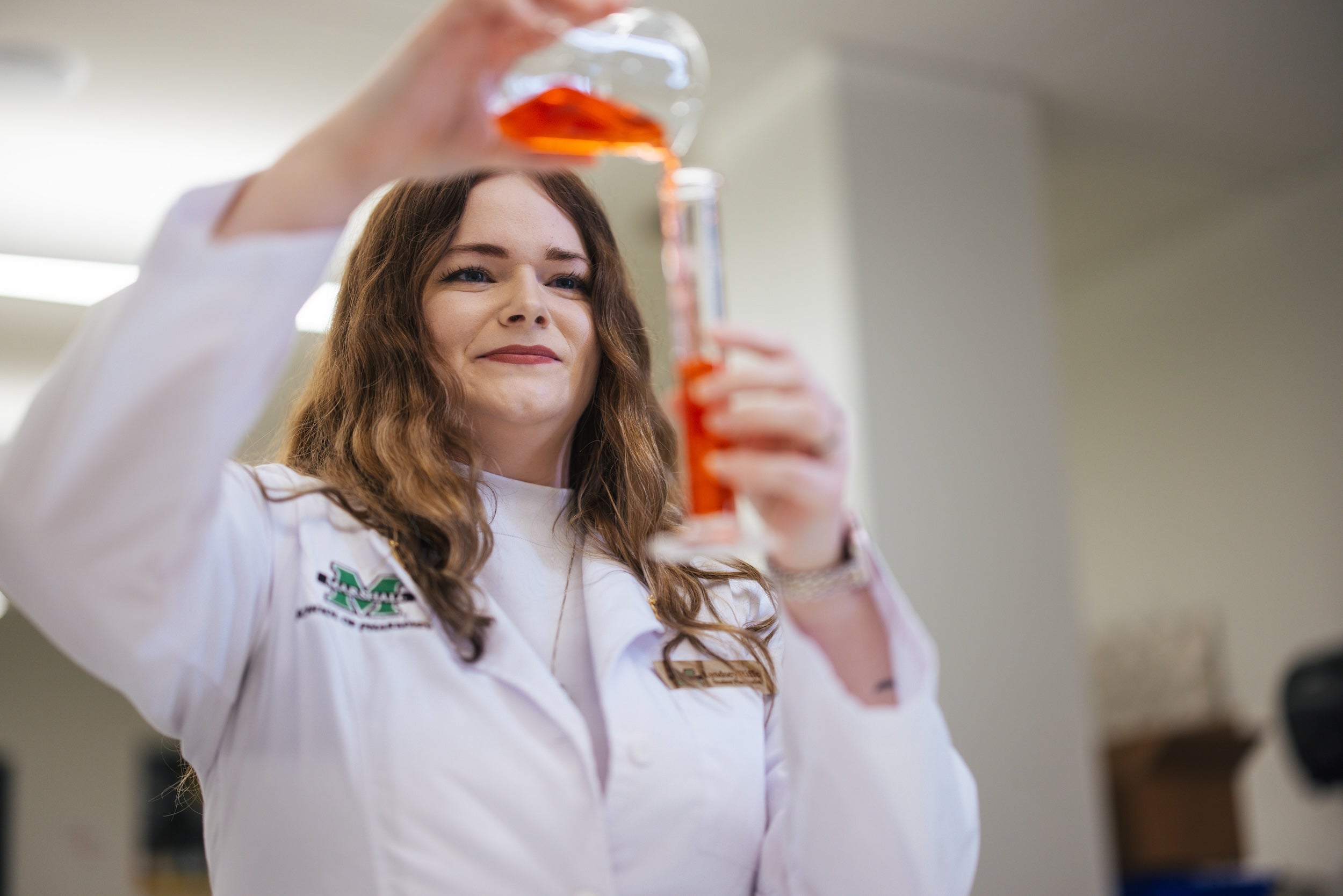
The PharmD/MBA Program will enable students to earn a Doctor of Pharmacy degree from the School of Pharmacy and a Master of Business Administration from the College of Business.
The program is developed to respond to the increasing need for pharmacists and pharmaceutical researchers who are knowledgeable in the areas of pharmacy as well as in business administration. The field of healthcare has become increasingly cost effective and pharmacists need information and knowledge on accounting, marketing, operations management, human behavior, finance, decision-making and strategic planning.
Combining a Doctor of Pharmacy and MBA degree will prepare students for leadership positions that demand knowledge of pharmacy sciences and management concepts and provide graduates with skills, knowledge, and practical experience needed for a successful career in the pharmaceutical industry. Opportunities for PharmD/MBA graduates include:
- Department head in pharmaceutical manufacturing corporation
- Executive position in health care related industry or sales
- Leadership position in a pharmaceutical distribution center
- Administrator in a research managed care department
- Department director in state or federal health care agency
- Director of Pharmacy in a health care system
- Director of hospital operations
- District Manager level position with a retail drug store chain
- Starting and/or operating an independent pharmacy
Students admitted to the PharmD/MBA program will begin as their own cohort taught conveniently at the School of Pharmacy each fall semester during evening or Saturday hours. The degrees will be earned simultaneously. Admission to the PharmD/MBA dual degree program is competitive with limited seats available, and therefore, early application is encouraged.
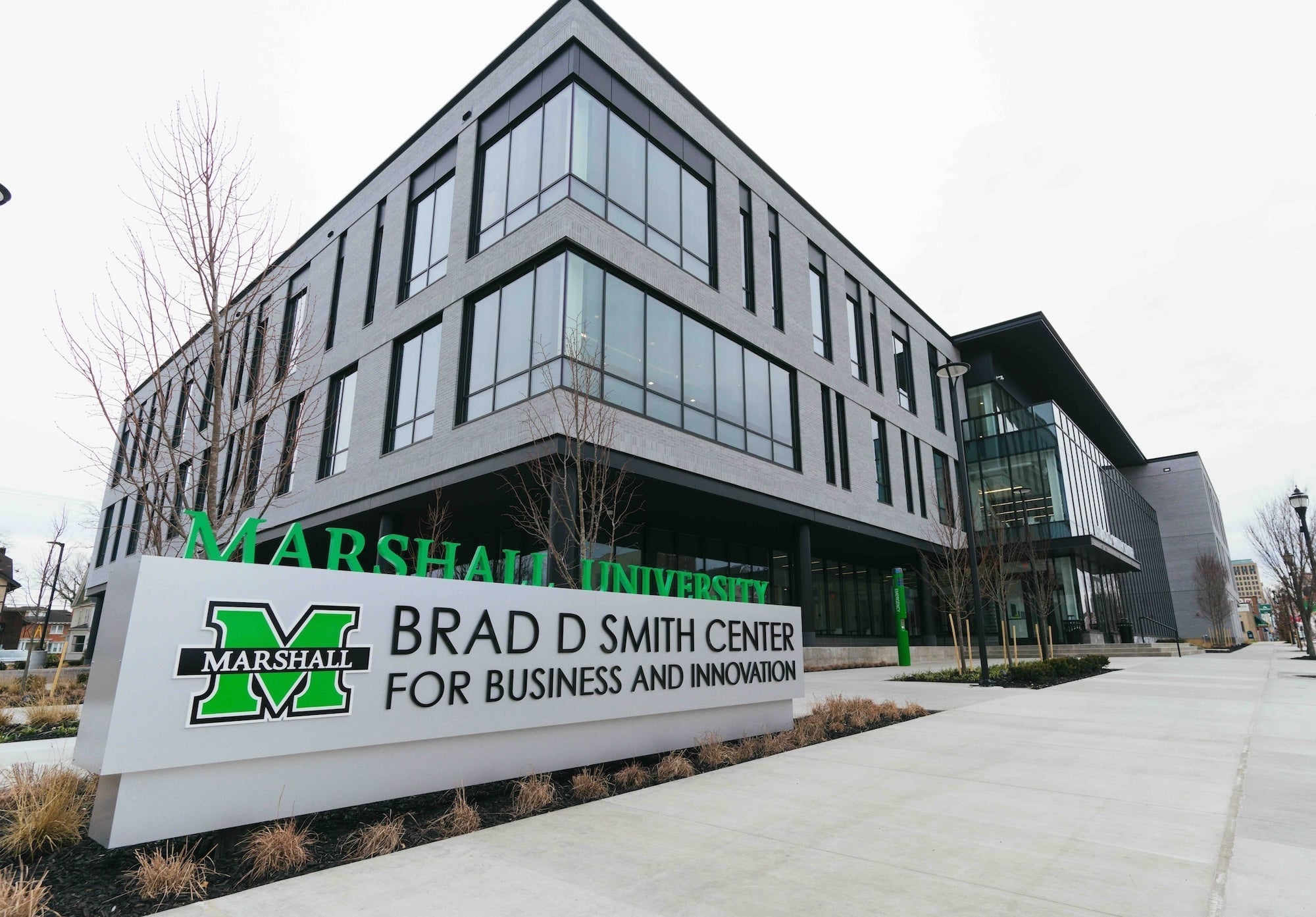
Marshall University’s Doctor of Pharmacy program has been granted full accreditation status by the Accreditation Council for Pharmacy Education (ACPE) Board of Directors. For an explanation of the ACPE accreditation process, please contact the Accreditation Council for Pharmacy Education, 135 South LaSalle Street, Suite 4100, Chicago, IL 60603, 312-644-3575; FAX 312-664-4652, website www.acpe-accredit.org
